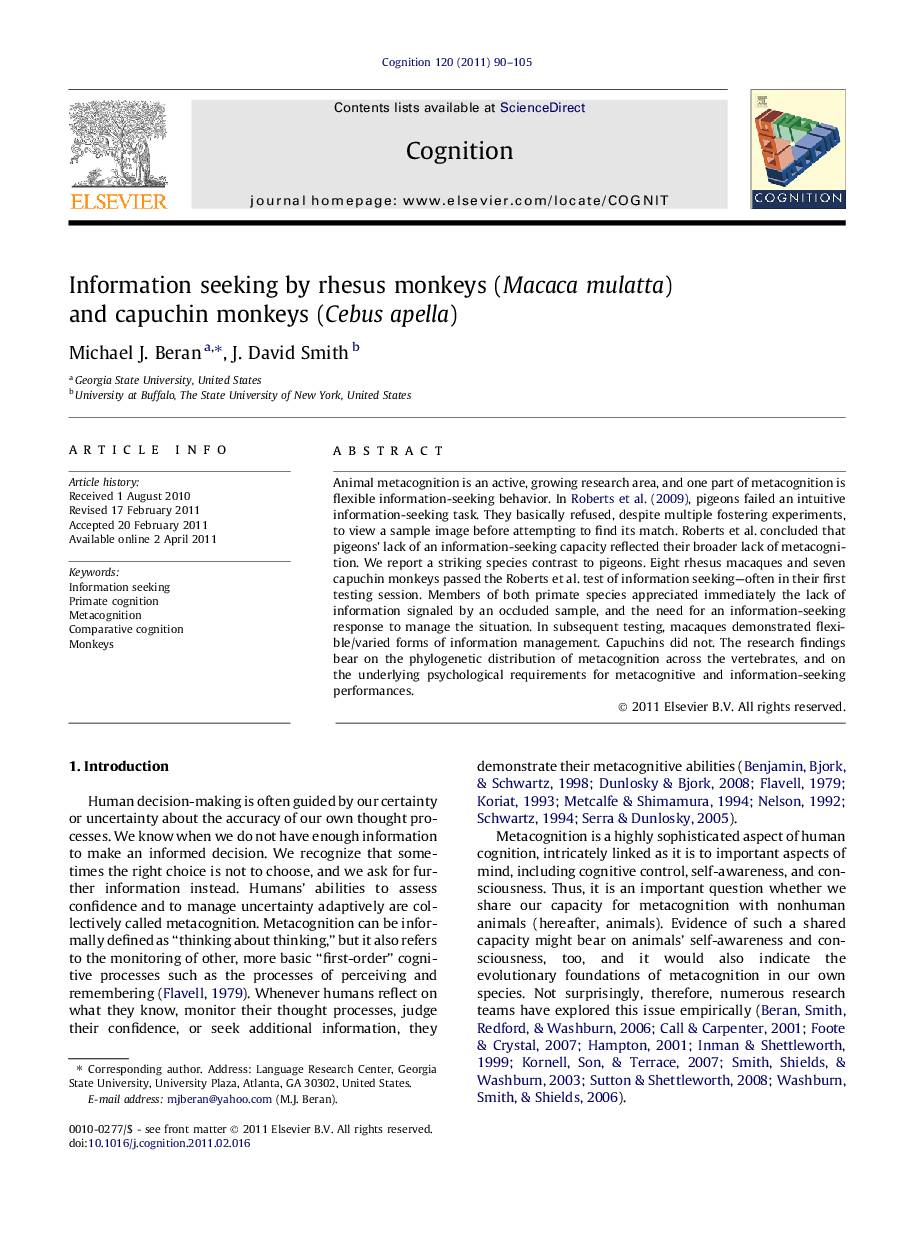| Article ID | Journal | Published Year | Pages | File Type |
|---|---|---|---|---|
| 10457861 | Cognition | 2011 | 16 Pages |
Abstract
Animal metacognition is an active, growing research area, and one part of metacognition is flexible information-seeking behavior. In Roberts et al. (2009), pigeons failed an intuitive information-seeking task. They basically refused, despite multiple fostering experiments, to view a sample image before attempting to find its match. Roberts et al. concluded that pigeons' lack of an information-seeking capacity reflected their broader lack of metacognition. We report a striking species contrast to pigeons. Eight rhesus macaques and seven capuchin monkeys passed the Roberts et al. test of information seeking-often in their first testing session. Members of both primate species appreciated immediately the lack of information signaled by an occluded sample, and the need for an information-seeking response to manage the situation. In subsequent testing, macaques demonstrated flexible/varied forms of information management. Capuchins did not. The research findings bear on the phylogenetic distribution of metacognition across the vertebrates, and on the underlying psychological requirements for metacognitive and information-seeking performances.
Related Topics
Life Sciences
Neuroscience
Cognitive Neuroscience
Authors
Michael J. Beran, J. David Smith,
